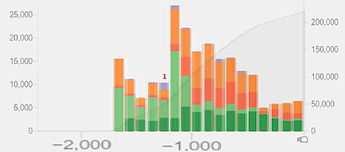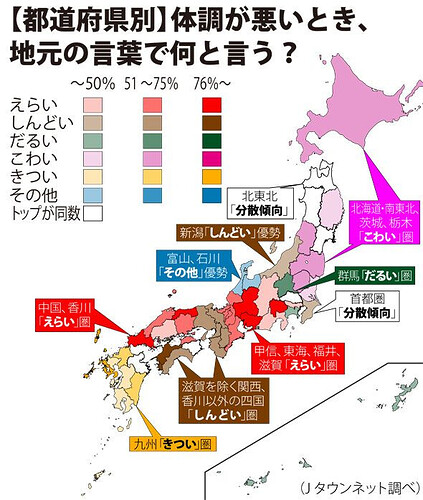皆さん、ようこそ! 
I read Chimmsen’s slow and cozy Japanese journey recently, and felt inspired to post about my experiences learning Japanese as someone living in a rural area of Japan. 
I hope others can at least be entertained by or relate to some of the experiences I share.
I tend to write a lot when I journal, so I can only imagine that will happen here too. I’ll try to create some organization for easier reading. 
To lay the foundation for this journal, I’ll be writing a lot, so strap in and get comfy. 
The 田舎 and how it started
I am an ALT that came to Japan last summer through the JET program. By now it’s been about 7 months since I moved here! I live in Hokkaido, which is a massive area of Japan with many rural areas. Public transportation here is also more limited so if you don’t live in a city like Sapporo, having a car is pretty much a necessity. My town has a population of about 10,000 people. As of now, there is only one other ALT, but at least there are others in the towns nearby too. My area has a good amount of foreigners who moved here for farming too, but interactions with them are pretty limited. I work at 3 junior high schools with a total of 4 JTEs (Japanese Teachers of English) with pretty decent English abilities.
When I first arrived, I had passed the N5 the previous December. Once I took the JLPT, I didn’t study much at all for the 3-5 months after that. Not sure exactly why but I just didn’t. So when I arrived in Japan I knew almost immediately that my N5 was not enough. That’s not to say it didn’t help, it did, but it made me realize it was just the beginning of understanding. This limitation fueled my fire to study and learn way more than it did when I was back home. I studied Japanese in university but the last official class I took was in 2019. After that, I studied completely solo. Never with much consistency until getting ready to take the N5 JLPT and applying for the JET Progam.
My language goals:
My goal is to become near fluent in Japanese. This is where my goals may seem pretty ambitious, but it seems more tangible to me on a flexible timeline. I know I won’t burn myself out and will let myself be flexible to take breaks or not do as much on some days.
I want to eventually pass the N1 and take the language proficiency tests that test your writing and speaking ability too, as those are not tested in the JLPT. I’ve also entertained the idea of getting my masters from a Japanese university. In the long run though, I don’t want to lose the Japanese I learn. That means, for me, to work in something that lets me use the language frequently. What that is, I don’t know yet.
Socially speaking, I want to connect with the people around me. I could tell from the beginning that people want to talk to me but the 言葉の壁 (language barrier) was in the way. I want to break that down so I can connect with my community.
Now, while I don’t want to restrict myself to a rigid timeline, just being on JET gives me a timeline of up to 3-5 years in my particular town. After JET is a whole lot of unknown so I find it best to do as much as I can while I’m here!
Why near fluency?
There are three main reasons for this. 1. I’m a bit of a perfectionist. 2. Many of my interests involve things that would use every aspect of a language; I have Japanese friends I’d like to talk to better and I like journaling, reading, and watching anime. 3. My college degree was in Anthropology and when I was young I got it in my head that the only way I would truly understand a culture was if I understood the language.
Where am I now in my language journey?
I am currently working through the Bunpro N4 grammar and vocabulary decks. I am hoping to take the N3 in December this year. I could take the N4 instead and pass no problems, but (here’s a nice JET insider) JET will reimburse the cost of the JLPT for N3 and above if you pass. So I’d rather aim higher and pay less. 
My comprehension has gone up a lot compared to when I first arrived, but my ability to respond is pretty limited and rudimentary. Still better than it was though!
My study resources:
-
I use Bunpro every day to at least do reviews, but I don’t do the lessons every day if I’m too busy. I’m perceptually fighting a review mountain
 . I haven’t done any yet today and it’s sitting at a solid 358 right now.
. I haven’t done any yet today and it’s sitting at a solid 358 right now.  Each time I do a new vocabulary or grammar lesson I write it down in a notebook that I keep with me all the time. This helps me practice writing but also helps reinforce it in my mind.
Each time I do a new vocabulary or grammar lesson I write it down in a notebook that I keep with me all the time. This helps me practice writing but also helps reinforce it in my mind. 
-
I also use WaniKani but I’m not as consistent with that. I have noticed it helps when I do though. I’m currently level 6, so not very far honestly, but it does help me create connections to the things I learn through Bunpro. I use it about 3-4 days a week on average.
-
Manga and Anime have been a great entertainment style of study. Lately I’ve been watching One Piece
 and reading 気になっている人が男じゃなかった.
and reading 気になっている人が男じゃなかった.  (multiple times since it’s not too long, good practice, and so cute!)
(multiple times since it’s not too long, good practice, and so cute!)
A student lent me a novel to read, but I’ve never read one before, so I’m not sure how well that will go. It does have furigana at least and I was able to read through the first page with minimal googling. -
I use YouTube for easy and controlled listening practice as well as shadowing. Some of the channels I watch the most are けんさんおかえり/ Japanese Conversations, Daily Japanese with Naoko, and Comprehensible Japanese
-
The people around me! I spend a lot of my time with Japanese people. I have my coworkers I meet outside of work, staff drinking events throughout the year, and chatting in the office here and there. Regularly I go to yoga, karate, the easy Japanese club, and run the English club for my town too. My guess is that I will end up writing about the social interactions I have here as those are times when I feel the most accomplished or defeated.
-
There are a few other resources I use scattered around too. I will link/ mention them as they come up.
And there you have it! お疲れ様です!We’ve made it to the end of this post! If you have any tips and tricks, comments, questions, or anything at all, I’d love to hear about it!
Thanks for reading and I’ll see you all next time!  またねー
またねー

 the 1 is when I came to Japan on the Jet Program
the 1 is when I came to Japan on the Jet Program
 I did enjoy it for the time I had it. I would probably enjoy it a lot more where I am now in my study journey though.
I did enjoy it for the time I had it. I would probably enjoy it a lot more where I am now in my study journey though.


 It felt a lot heavier than US graduation ceremonies do. But I still had a good time. The amount of bowing was insane and I had to stay on my toes to figure out when I needed to bow too. While I couldn’t grasp the entirety of the speeches given, I was able to understand enough that I too felt moved by what was said.
It felt a lot heavier than US graduation ceremonies do. But I still had a good time. The amount of bowing was insane and I had to stay on my toes to figure out when I needed to bow too. While I couldn’t grasp the entirety of the speeches given, I was able to understand enough that I too felt moved by what was said. It was nice to talk with her for so long, feeling like I was surviving the conversation. Responses were rough, but I was able to try more the longer it went on for, and as I got comfortable in the conversation. She reassured me that she was able to understand what I was saying too, which was nice. I think it’s easy to tell when I’m searching for the right word or grammar.
It was nice to talk with her for so long, feeling like I was surviving the conversation. Responses were rough, but I was able to try more the longer it went on for, and as I got comfortable in the conversation. She reassured me that she was able to understand what I was saying too, which was nice. I think it’s easy to tell when I’m searching for the right word or grammar.
 I definitely don’t think I’ll be having problems with those words anymore.
I definitely don’t think I’ll be having problems with those words anymore. I did know both words but for some reason without subtitles the right one didn’t come to my mind
I did know both words but for some reason without subtitles the right one didn’t come to my mind  now im well aware じしん can be different things and im sure next time I’ll figure out which one the person is talking about
now im well aware じしん can be different things and im sure next time I’ll figure out which one the person is talking about  (but probably this will happen again with other words…)
(but probably this will happen again with other words…)